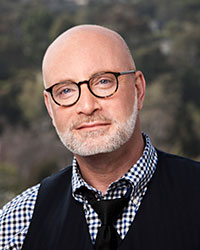 Dr. Robert Weiss LCSW, CSAT
Dr. Robert Weiss LCSW, CSAT
Covert incest, also known as emotional incest and parental enmeshment, is the surreptitious, indirect, sexualized emotional abuse of a child by a parent, stepparent, or any other long-term caregiver. In contrast to overt sexual abuse, which involves hands-on sexual contact, covert incest involves less direct forms of sexuality—sexuality that is emotionally implied or suggested rather than overtly acted out. In this way, a child is used for emotional fulfillment, forced to support the adult by serving as an emotional spouse.
Though there may be little to no direct sexual activity, these overly enmeshed relationships have a sexualized undertone, with the parent expressing overly graphic verbal interest in the child’s physical development and sexual characteristics and betraying the child’s boundaries through voyeurism, exhibitionism, sexualized conversations, inappropriate sharing of intimate stories or images, and similar behaviors.
Covert incest usually occurs when the parents have distanced themselves from one another physically and emotionally, which often occurs when one (or both) of the parents is mentally ill or addicted. When dysfunctional parents distance themselves from each other, one of the parents may focus on a child, seeking adult emotional fulfillment by using the child as a surrogate partner. The parent might also tie their self-esteem to the success of the child. Either way, the child’s developmental needs are ignored, and emotional growth (especially around healthy sexual and romantic attachment) can be profoundly stunted. Amazingly, the perpetrating adult is usually completely unaware of the emotional damage they are creating.
Dashiell, a 53-year-old porn addict raised in an upper-middle-class household, says that when he was young, his mom would pull him out of school some days—simply because she wanted his company. She just dragged him along while she shopped, and then they’d have lunch. Sometimes, she would take him to the movies with her—not kid movies but grown-up stuff. He says that his dad was always either working or drinking, so he was his mother’s fill-in. “In a way, it wasn’t so bad. I liked skipping school and eating out and getting to see movies that other kids didn’t, but at the same time I always felt a bit weird with her. She always sat a little too close to me, and she commented on my body all the time, especially when I was a teenager. Sometimes she’d walk into the bathroom when I was in the shower to put away towels or some stupid thing that could easily have waited until I was done and dressed. Stuff like that. I had no privacy. Even if I was in my room with the door locked, she would be right outside, listening and asking me through the closed door what I was doing, was I OK, did I need her for anything. All I really needed was for her to leave me alone. By the time I was 15 or 16, just being in the same room with her made my skin crawl.”
The mixed feelings Dash has about his mother are not uncommon in covert incest survivors. On the one hand, his special relationship with his mother was a cherished privilege; on the other hand, something about it felt icky, enmeshed, and just plain wrong.
Most covert incest survivors initially resist the notion that they have been sexually abused because they were never actually touched in a sexual way by the perpetrator. However, these relationships are indeed sexualized. Essentially, a child in these circumstances is sexualized, emotionally enmeshed, and treated as an adult partner, and therefore is deprived of healthy attachment bonds, stable emotional growth, and many other basics of childhood development.
In lieu of healthy development, the child is taught that their value is based not on who they are as a person but on how much they can please, amuse, and bond with their caretaker. As a result, covert incest survivors typically respond in the same ways as survivors of overt sexual abuse, with many of the following adult-life symptoms and consequences:
- Addiction (especially sex/porn addiction).
- Issues with long-term intimacy.
- Emotional enmeshment.
- Shame and feelings of inadequacy.
- Dissociation.
- Difficulties with self-care (emotional and/or physical).
- Love/hate relationships, especially with the offending parent but also with others.
- Inappropriate bonding with their own child (intergenerational abuse).
As pervasive and damaging as covert incest is, it frequently goes unrecognized in treatment settings. As my colleague Debra Kaplan says, “The obvious signs are obscured from plain view. It is like the air in the room—it’s here, but you can’t see it.” This confusion affects survivors and therapists alike. In general, the thinking seems to be that if there’s no actual physical sexual contact, then no harm has been done. It is only when we dig beneath the surface that we see the connections between covertly incestuous behaviors and adult intimacy and addiction issues, including sex and porn addiction.
* * * * * * * * * *
Seeking Integrity is proud to serve clients from all across the globe, offering our world-class expertise and care. If you would like to connect about treatment options today, please reach out to us at 1-747-234-4325, or through our contact page.
Integrity. Expertise. Recovery.
